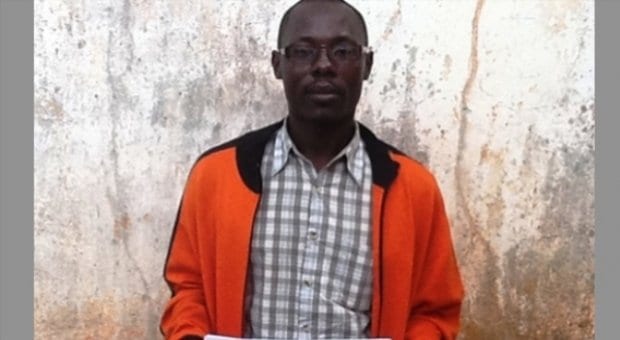A gay Cameroonian man who was convicted and jailed for texting, “I’m very much in love with you,” to another man died Jan 10.
Roger Jean-Claude Mbede was arrested in March 2011 and sentenced to three years in prison for homosexuality and attemped homosexuality, according to a report by Amnesty International, which had declared Mbede a prisoner of conscience. He was granted provisional release in July 2012 and went into hiding. A court of appeal upheld his sentence in December 2012.
Amnesty International says Mbede, 34, had to be treated for a hernia after he was released. A month before he died, his family, who said he was a curse on them, removed him from hospital, an Associated Press report says.
Human rights lawyer Alice Nkom blames Cameroon’s criminalization of homosexuality for bringing Mbede’s life to a premature end.
Nkom, who represents people prosecuted for homosexuality in Cameroon, has said that in the aftermath of the July 2013 murder of prominent gay rights activist Eric Lembembe, life has become more difficult for gay people.
Nkom criticized the way authorities are handling the case of Lembembe, found tortured and killed at his home, saying young men are receiving death threats on their mobile phones and feel forced to go into hiding, a Gay Star News (GSN) report says.
According to Nkom, authorities have not condemned the killing of Lembembe, who was fighting to decriminalize homosexuality in the African country.
Amnesty International says arrests have increased since 2005, noting that 32 men were detained in a nightclub in the capital, Yaoundé. Under Cameroonian law, those suspected of having “sexual relations with a person of the same sex” are often held without charge for more than 48 hours, with detainees reporting that they have been beaten, subjected to anal exams without consent or faced other forms of punishment.
An Amnesty International report, entitled “Making Love a Crime: Criminalization of Same-Sex Conduct in sub-Saharan Africa,” notes that there has been a ramping-up of efforts to further criminalize queer people in the region in the last 10 years by targeting behaviour or imposing steeper penalties and broadening the scope of existing laws.
“Even in countries where anti-homosexuality laws are not routinely implemented, the existence of the laws alone provide opportunities for abuse, including blackmail and extortion, both by police and by non-state actors,” the report continues.
On Dec 20, Ugandan lawmakers passed a long-anticipated anti-gay measure that the country’s president, Yoweri Museveni, has said he would review before either signing it or sending it back to parliament.
After a long delay, Nigerian President Goodluck Jonathan has signed his country’s anti-gay bill into law. That measure makes it a criminal offence to engage in gay rights advocacy, prohibits gay marriage and prescribes stiff jail sentences for public demonstrations of same-sex affection.


 Why you can trust Xtra
Why you can trust Xtra


